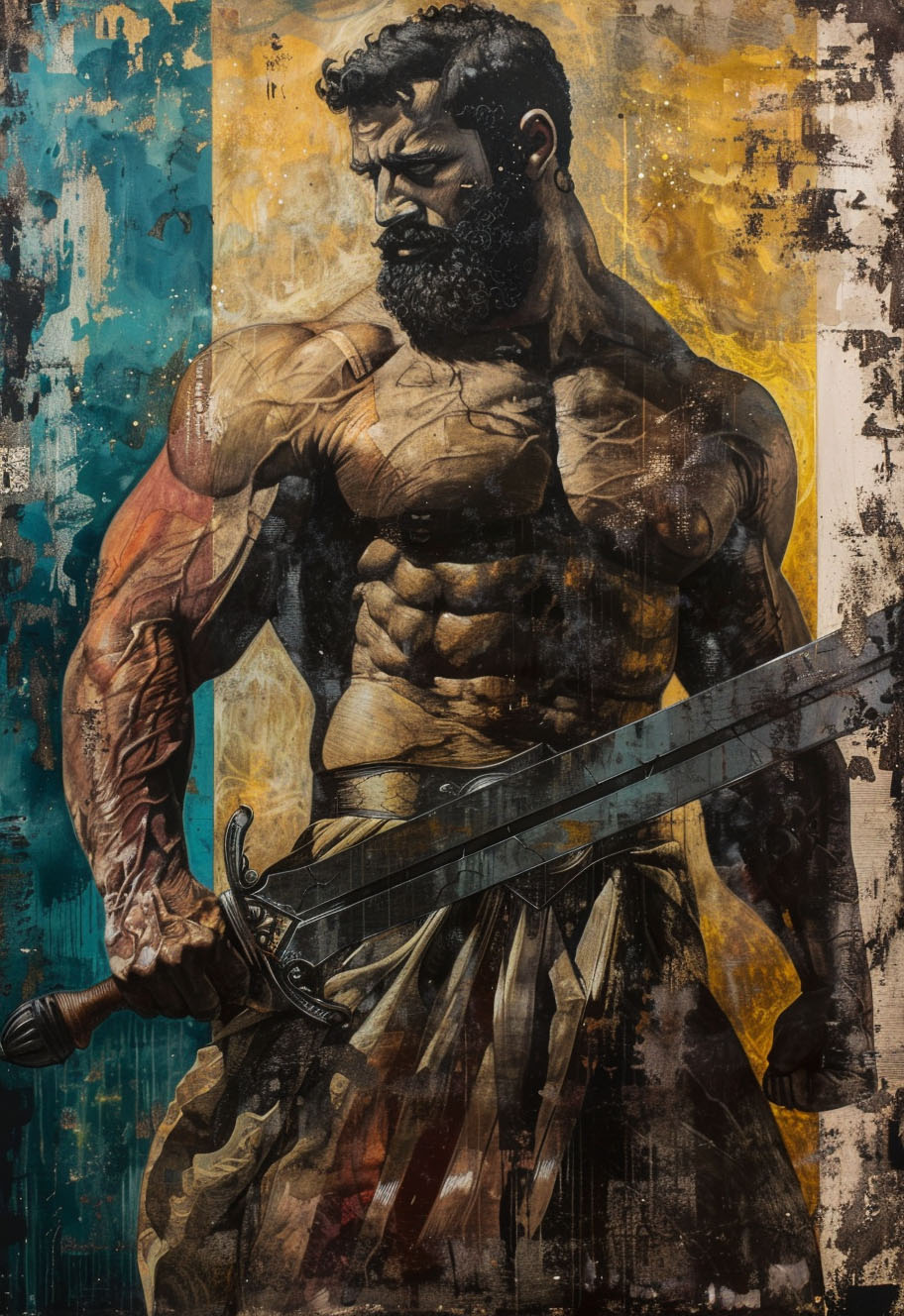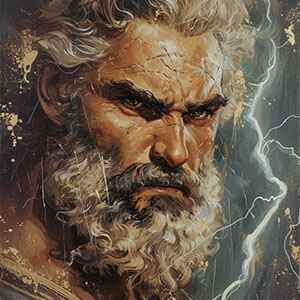
Parentage: Heracles is the son of Zeus, the king of the gods, and Alcmene, a mortal woman. He is renowned for his exceptional strength and courage.
Labors of Heracles: One of the most famous aspects of Heracles's myth is his Twelve Labors, a series of tasks assigned to him as punishment for killing his wife and children in a fit of madness, induced by the goddess Hera.
Twelve Labors: The Twelve Labors include tasks such as slaying the Nemean Lion, capturing the Golden Hind, and cleaning the Augean stables. These labors showcase Heracles's incredible feats and determination.
Divine Origins: Heracles's divine parentage grants him extraordinary strength, making him one of the most celebrated heroes in Greek mythology. Despite facing numerous challenges, he overcomes adversity and achieves immortality.
Associations: Heracles is often associated with strength, heroism, and the triumph of the human spirit. His stories emphasize the virtues of courage, resilience, and loyalty.
Death and Deification: Heracles meets his end through the poisoned blood of the Hydra, but he is later granted immortality and elevated to Mount Olympus, joining the gods as a deity.
Family: Heracles has various descendants and connections, including his children with Megara and other mortal women. He is also a half-brother to gods like Perseus and Dionysus.
Mythological Influence: Heracles's tales have left a lasting impact on Western literature, art, and popular culture. His heroic deeds and struggles have inspired countless works and continue to be a symbol of heroism.
Immediate Family
Quick Facts
- Heracles is the son of Zeus and Alcmene.
- He is famous for his Twelve Labors, which showcase his extraordinary strength and courage.
- Heracles is associated with strength, heroism, and the triumph of the human spirit.
- Despite facing challenges, he achieves immortality and joins the gods on Mount Olympus.
- Heracles has various descendants and connections, including his wife Megara and numerous children.
- His tales have had a profound influence on Western literature, art, and popular culture.
Further Reading
Art &
Architecture
Ancient Greek art and architecture, with its harmonious proportions and timeless elegance, continue to inspire awe and admiration millennia later.
Discover
Greek Mythology & Mythical Characters
Greek mythology, a rich tapestry of gods, heroes, and mythical creatures, captivates the imagination with its tales of love, betrayal, and epic adventures that delve into the depths of the human psyche.
Discover
Ancient Greek History
Ancient Greek history, marked by remarkable achievements in democracy, philosophy, and warfare, shaped the foundation of Western civilization, leaving an indelible legacy of innovation and cultural influence that continues to resonate to this day.
Discover
Ancient Greek Olympics
The ancient Greek Olympics, held in Olympia every four years, celebrated athleticism, unity, and cultural pride, serving as a testament to the enduring spirit of competition and excellence that transcends time and borders.
Discover
Ancient Greek Wars
Ancient Greek wars, such as the Persian Wars and the Peloponnesian War, were pivotal conflicts that shaped the course of history, highlighting the struggle for power, independence, and the clash of civilizations in the ancient Mediterranean world.
Discover
Ancient Greek Culture and Society
Ancient Greek culture and society, characterized by its emphasis on art, philosophy, and civic engagement, fostered a vibrant intellectual and social landscape where innovation flourished, democracy thrived, and the pursuit of knowledge and excellence was celebrated as fundamental values of civilized life.
Discover

